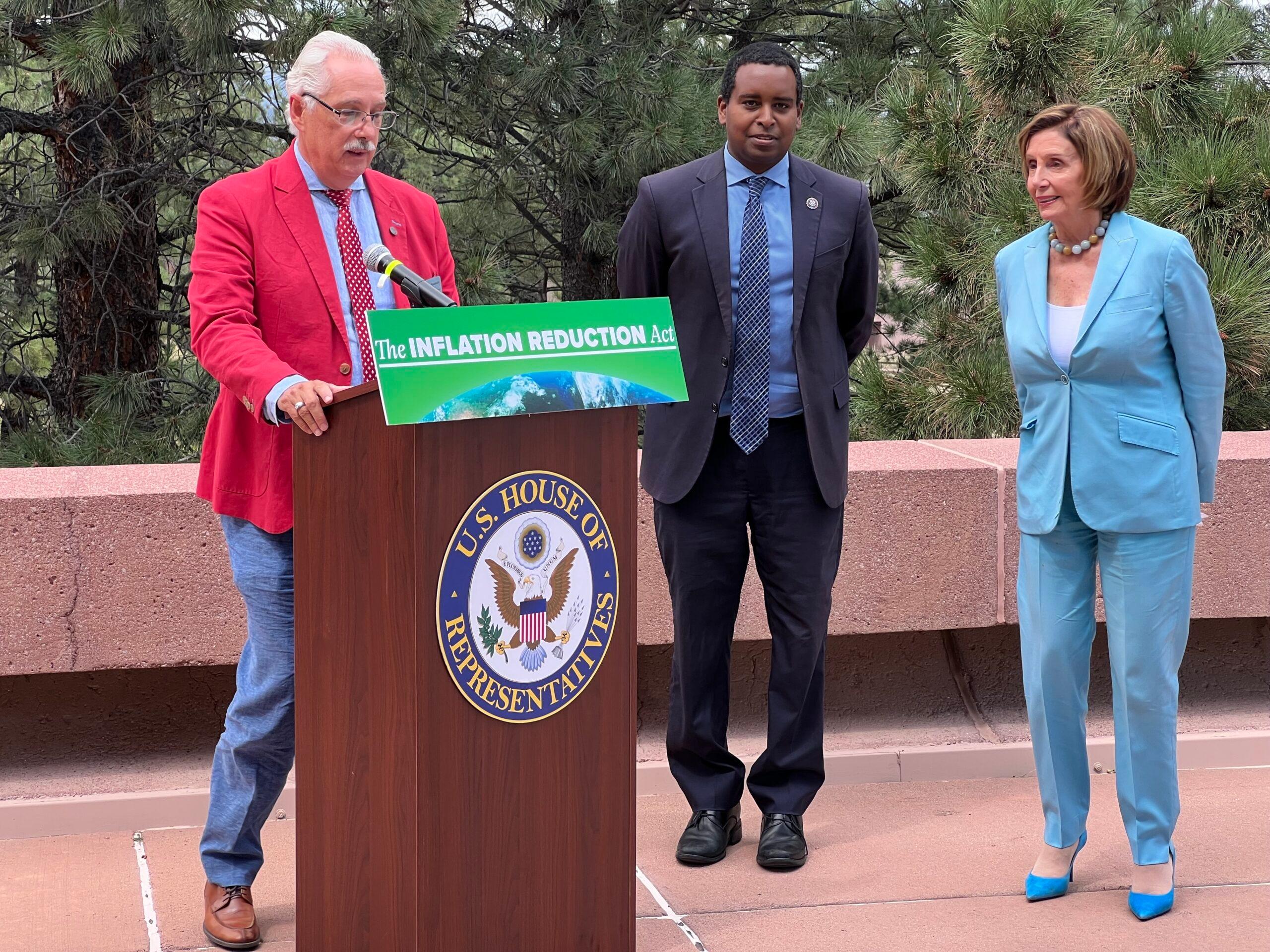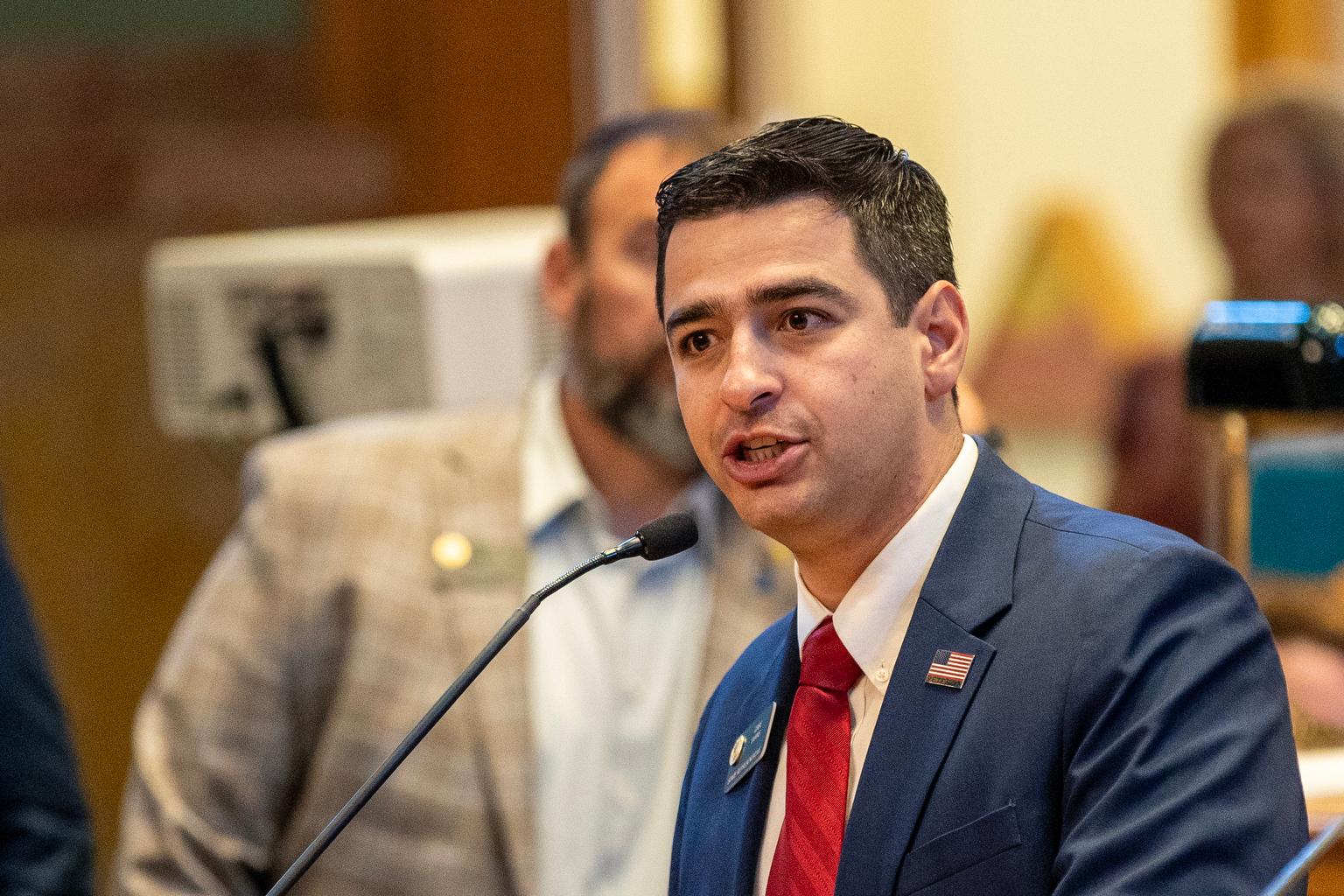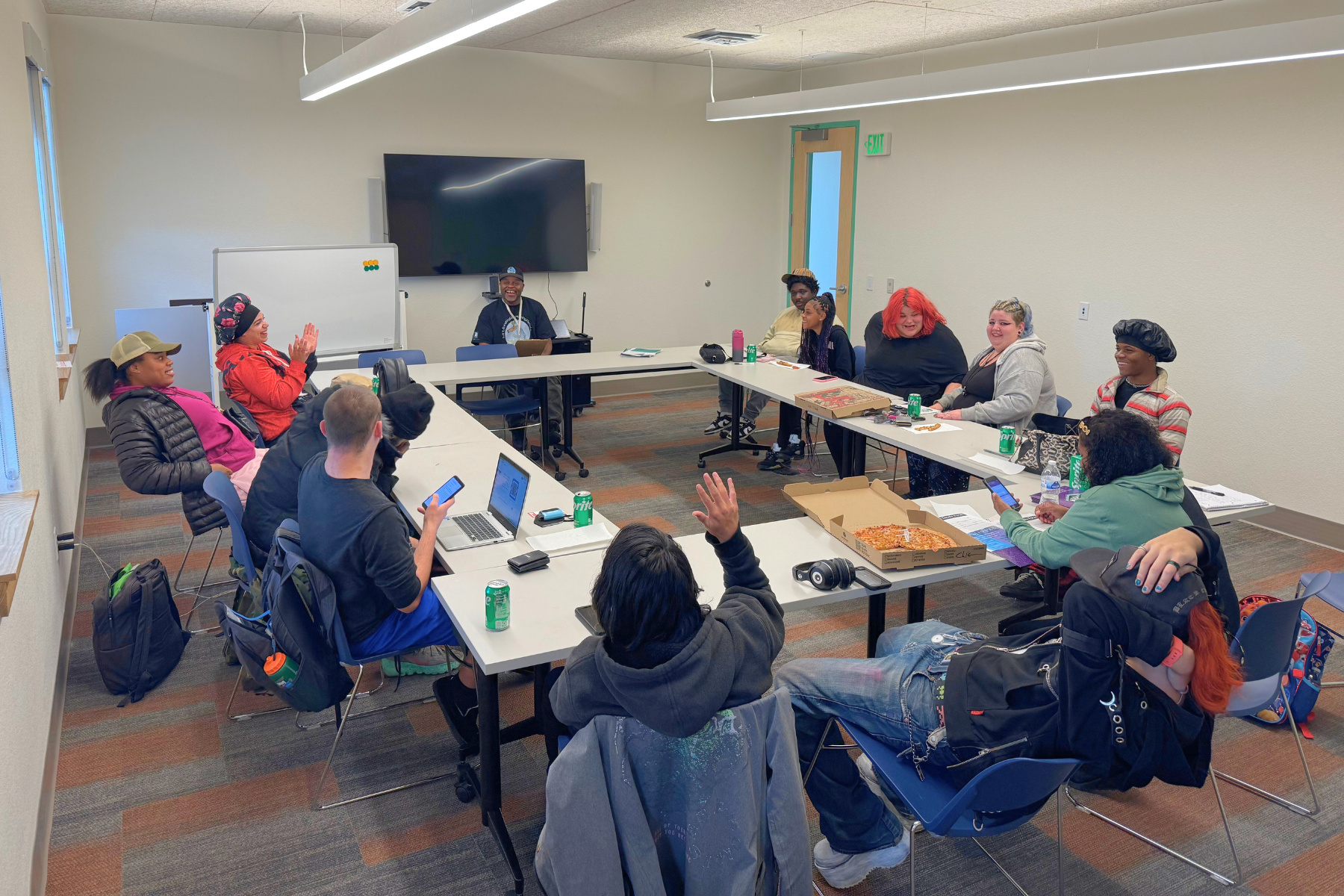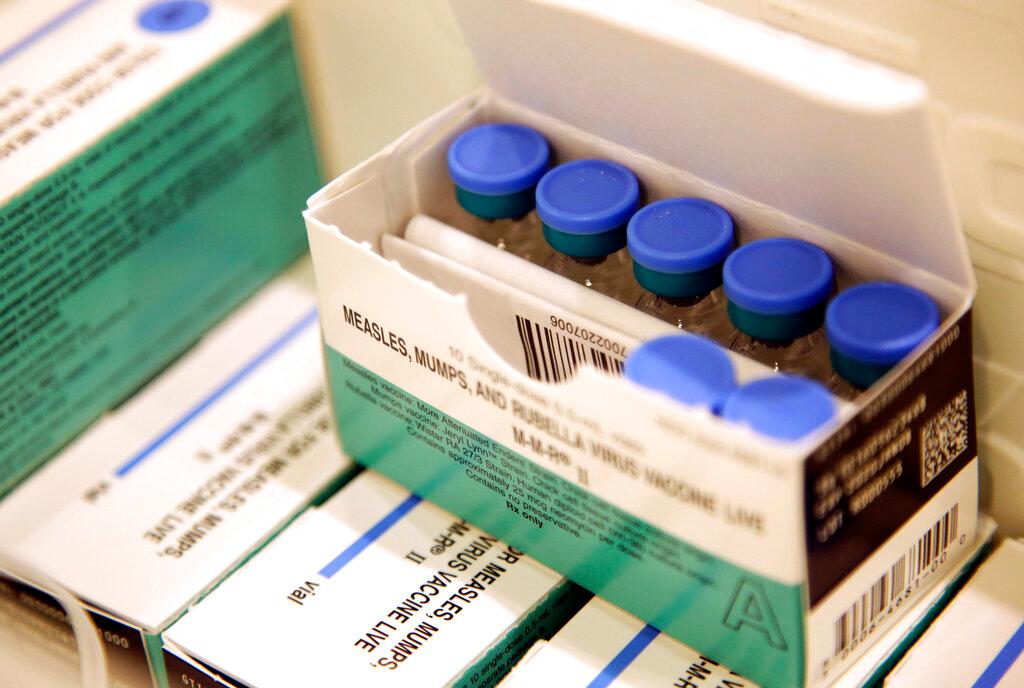
House Speaker Nancy Pelosi visited the National Center for Atmospheric Research — the campus in Boulder that’s a hub for scientists studying climate change and water — on Wednesday. Speaking on a plaza with a sweeping view toward the plains, she and Democratic Rep. Joe Neguse promoted Democrats’ recent climate and tax package.
The new law, known as the Inflation Reduction Act, totals hundreds of billions of dollars, and it includes $4 billion for water conservation efforts along the Colorado River.
The aid comes as reservoirs on the river have dropped to unheard-of levels, and the U.S. Bureau of Reclamation has announced cuts that will limit water supplies to some lower-basin states and Mexico.
Asked how the federal government should intervene in the tense negotiations between the watershed states, Pelosi stressed that Congress would look to the states to lead the way.
“It's not a question of what we tell them. It's how we listen to them as to what the best possible path is to go forward,” she said. “But if we get a running start with some of the [new] resources, we can see a clearer path, rather than just coming with nothing.”
Neguse said that money was only a start.
“It is a down payment, really, for the drought resiliency efforts that are gonna have to take place over the ensuing decade. When you're thinking about a 2- to 4-million acre-feet shortage on the Colorado River, that is an epic challenge that's facing roughly 30 to 35 million people in the Southwest part of our country,” he said.
The upper-basin states, including Colorado, have released a plan detailing how they would contribute to water cuts that have been demanded by federal officials. That plan, released in July didn’t outline any new water restrictions in upstream states. Water managers in Arizona, California and Nevada failed to agree on a water-reduction plan for the lower basin. Earlier this month, the federal government said it would order reductions of water flowing into Arizona, Nevada and Mexico — part of a drought contingency plan agreed upon by the states in 2019 and an emergency effort to shore up water levels in Lake Mead and Lake Powell, the nation’s two largest reservoirs.
Colorado Republicans have criticized the overall spending package, saying it may contribute to inflation rather than reducing it. They’ve also focused criticism on its increased funding for the IRS, which they say will lead to more frequent audits for Americans of all incomes — not just the wealthy tax filers that the IRS says will be targeted.
Pelosi’s Colorado trip also included some election stops. She said she planned to meet with Brittany Pettersen and Yadira Caraveo, the Democratic state lawmakers who are running in the 7th and 8th Congressional districts respectively. Those districts are likely to be Colorado’s closest U.S. House races this year.
“We have absolutely every intention of holding the House, and the path to that victory comes right through Colorado,” Pelosi said.
More about the Colorado River
- The most endangered river: A conservation group considers the Colorado River the epicenter of the nation’s water and climate crisis.
- Lake Powell dangerously low: As the reservoir dries up, there’s growing concern about the future of hydropower production.
- What happens if the river keeps drying up: It could trigger a chain-reaction of legal wrangling that could lead to some water users being cut off from the river.
- Tribes fight for inclusion: Leaders of native tribes who depend on the river say a century-old agreement is fueling water inequalities.
- Where’s the water going?: Much of it gets absorbed by soil baked dry by hotter temperatures due to climate change.









